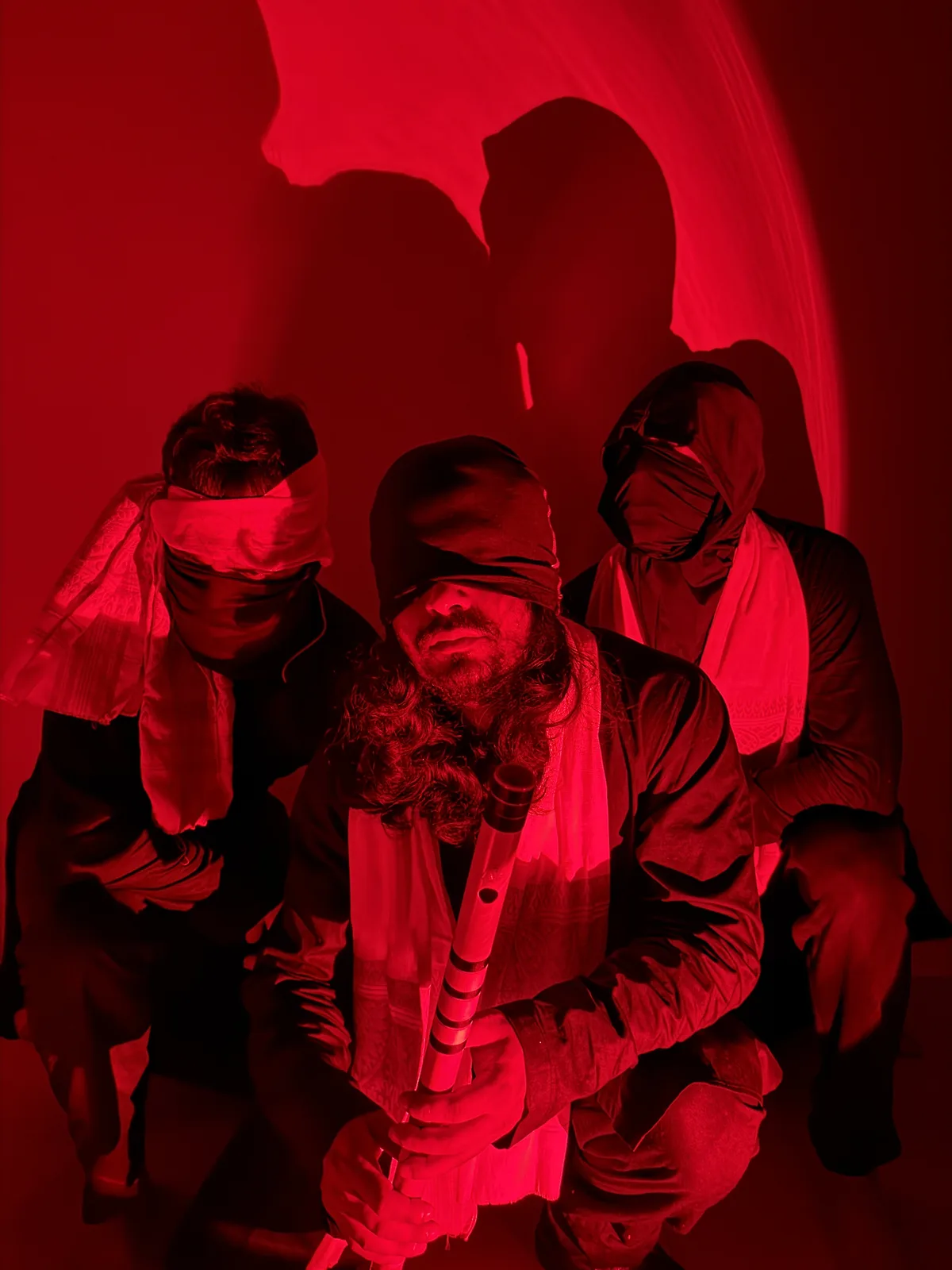Over the years as a music enthusiast, I have come across abundant styles and genres that have dominated the global music space since time immemorial. Needless to say, just like everybody else, I found a home in some of them while not caring much about the others. But in the past few years, a particular style of music has been my object of hyper-fixation – one that has been amusingly termed “math-rock” by listeners and critics alike. Although the name itself might raise a few eyebrows (with a ton of artists detesting it altogether), it cannot be side-lined that the title itself is quite fitting to the kind of music that falls within its ambit. If you are someone like me, you probably would have guessed what I’m talking about by now – rock music that incorporates complex time signatures and rhythmic patterns, and other non-conventional playing techniques.
The definition of “math-rock” itself has changed over the years with bands like Don Caballero, Faraquet, and Slint paving the way for the more contemporary Chon, TTNG, Covet, and others to take precedence. Asian countries like Japan, in particular, has had a happening scene in this sort of music for a long time now too with artists like Toe, Tricot, Haisuinonasa, JYOCHO, and others leading the way. These artists have not only imbibed the cookie-cutter “math-rock” sound into their sonic palettes but have also taken titbits from a whole range of musical schools to come up with a sound of their own.
All that being said, I was kind of disappointed that no one (well at least to my knowledge back then) was experimenting with this kind of music in the Indian independent space ever since I first got into it. In quite a strange thought process, it seemed like a rather exciting notion to have homegrown artists play this kind of music which was close to my heart more than anything else. That was until I had the fortune of coming across several bands in the indie arena who have actually been playing around with this style to the extent where their music cannot be classified into that box at all, but rather, they have created a sound that has an identity of its own. And that is quite a feat to achieve in a country that is yet to properly grasp this kind of sound and appreciate its beauty wholly.
Murder in Space, a Shillong-based rock band who started their activities back in 2019 after gaining attention for a “15 seconds of guitar riff and posting it on Instagram stories” said that their music is “a get away from stressful life, to seek peace, love, and phase into a new imaginary world.” And indeed, the band who recently came out with their debut EP Welcome Home in July this year, has created a kaleidoscopic soundscape deriving influences from math-rock, pop, and post-rock music. “Since the band loves pop, rock, and dream-chill music, we decided to create a combination of these genres to create mixed emotion music,” they commented.
The band, who cited Toe, American Football, Vasudeva, Totorro, and others as their main inspiration stated that when it comes to the Indian independent music scene, “math-rock has always been around. Music evolves as time goes by, it’s just that we must keep the consistency of this genre and introduce it to new listeners and interact and share. We are pretty sure it is already flourishing and will be going ahead more. The audience response has been great since we last released our EP. We got positive reviews, good support, and yeah, an idea to create more music.”

And it seems like they have high hopes for this kind of music to make its statement in the scene too. When it comes to other musicians, they believe that “experimenting is something that every band should be doing to find their sound, seek more music, add variants of the genre.” “As much as we have seen, the independent bands are experimenting, yes,” they added. And when it comes to themselves, they claim that their “band’s goal is to play as many festivals as we can and release an album.”

Delhi-based rockers Kraken don’t want to define themselves as purely “math-rock”. Rather, they have created their very own persona with their music that reflects influences of the sound, but combines elements from a diverse range of genres. “India is musically extremely progressive, diverse, and historically rich. And western musical styles find analogous musical genres within the country as well. So, we aren’t alien to odd-timed signatures, microtonal scales, and the other offerings usually associated with math-rock and similar genres. That being said, I don’t think Kraken has ever considered itself purely math-rock or made music keeping the tropes of the genre in mind – most of our music is 4/4,” they said.

“We are some sort of dance band in our own minds, and with every release, we are trying to get closer to that sound we hear in our minds,” they commented. “We wanted to experiment with writing music that reflects the sounds and moods of the city we represent – Delhi. And try to marry it with the musical landscape of the city and our own influences. That is – hip hop, Punjabi, and folk music mixed with glam rock and metal which are our roots. The idea is to be as honest as possible with our musicianship, and not be afraid of what comes out at the other end,” they added.
Since their formation with the release of their debut single “Dance Jane Dance,” the band has come a long way. Recently, they came out with their second full-length release Club Namaste on September 9, 2022. They cite Gurdas Maan, Sidhu Moose Wala, Guthrie Govan, Children of Bodom, BTS, DPR Live, and NCT as their major influences.
And how has the audience’s response been to their music? Well, they have some good news in tow. “The response to our music has been extremely encouraging, we crowdfunded an entire EP in the middle of the pandemic, thanks to the wonderful people that support our sound and vision,” they said. “We want to make music that makes us dance and have a good time with our friends and fans playing for them. Anything more than that is a bonus for us,” they claimed.
According to them, with so many artists constantly experimenting with fresher sounds every day, there still lies hope for an all-around musical resurrection. “Unfortunately, the pandemic, followed by the brutal lockdowns has hit independent musicians terribly. Many acts at the cusp of something fresh and new have had to call it quits and that has been a huge loss for the country. With that being said, globally there has been a lot of fusion of genres and styles, even in the mainstream. And I guess everyone’s take on it is different, there has been an almost militant devotion to combining as many styles as possible in a song, which is now making the listeners a little jaded and haggard of these sounds. So, many consumers are now rediscovering hidden gems that aren’t dictated by label heads and trendsetters but are influenced by that familiar yet exhilarating emotion of discovering and loving music on a personal level,” said Kraken. “ We are seeing a cultural renaissance at the moment, with many styles that were once labelled ‘not marketable’ making a strong comeback amongst listeners and the youth,” they added.

Haiku-Like Imagination, the brainchild of Sucheth Ramprasad revel in a sound influenced by “the technical and creative style of math rock and the aggression and intensity of post-hardcore music.” The Bangalore-based outfit has incorporated a heavier sonic palette into their soundscape that resonates throughout their debut 2019 release Eat Lead, Motherbuzzer! “Most of our songs have a concept/theme that we bring out in convoluted ways, through our music,” they commented.
The band, who have been in the scene since 2016 claim that they write music that they’d like to listen to themselves. “Our entire aim was to create a fresh new sound, that was pretty much unheard in this country,” they added.
“Also, the nature of our sound which is heavy and playful, strange but fun… the combination is something we like,” they said. “Everyone in the band has a huge palette from which they draw influence. But some of our collective influences are Chon, The Dillinger Escape Plan, Dance Gavin Dance, Toe to name a few,” they added.
They that the metal scene of the country is yet to accept a sound like theirs with open arms. “The whole metal and heavy music scene seem to be swaying between nascence and effervescence. Things feel a little more unpredictable at the moment, especially with a niche genre like ours,” they said. However, despite the obstacles in the way, they are not willing to back down anytime soon… but there’s always hope for real music, made with the right intentions,” they added.

After positive feedback to their debut album launched them into Bengalore’s music circuit, the band has only been polishing their skills and fine-tuning their craft till the next release. “We have pretty much, a small cult following, that has been with us right from before we dropped our first album. The ones that knew the tunes before they were even released,” they commented. They broodingly reminisced about their live shows, “The response from them [the audience] has been great. We see them waiting for their favourite tunes during shows, and actually navigate their way through our songs, which is a really cool sign.”
As for how they see this progressive sound evolving in the scene, they are of similar opinions as the others. “Well, a lot is going on in the current times. As always, there’s massive scope for more commercial styles of music. But there will always be those that want to create something different, something new,” they commented on the matter. “They are out there, right now, doing just that. Maybe just not as visible as the others… as a band just want to keep expressing ourselves through our music, as best we can, always open to change and an evolving sound,” they added.

Although math-rock and other related styles of music are still quite a niche occurrence in the Indian indie music space, artists like these are taking it upon themselves to make their audience acquainted with this quirky and elegant sound that often goes unnoticed for the most part. Bands like Haiku Like Imagination, Kraken, Murder in Space, Hotaru, Sky Level, and others have pretty much established themselves as the pioneers of this sonic expression that brings a breath of fresh air into the repertoire of music being produced in the country. And that truly is quite commendable, to say the least.





























